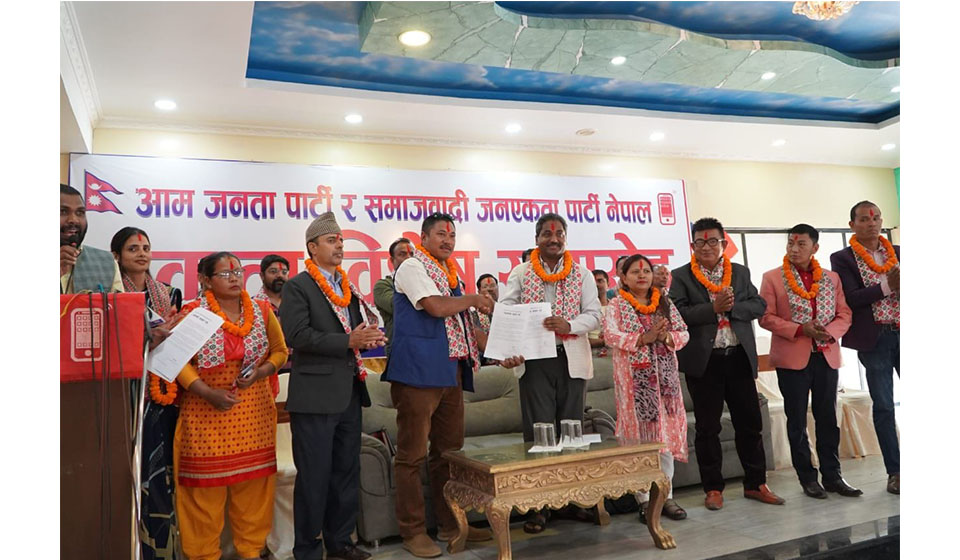
OR
Opinion


Ananda Raj Khanal
The author serves as the chairman of Nepal Digital Leads and has previously held the position of Senior Director at the Nepal Telecommunications Authority.arkhanalnta@gmail.com
FDI in ICTs play vital role in general and data centers and cloud services in particular
Challenges loom over the growth of FDI in Nepal's ICT and Telecom sectors. The recent exit of Axiata Group Berhad from Nepal’s Ncell underscores these hurdles. It is crucial for Nepal to conduct a thorough analysis of Axiata's decision, considering the challenges cited by the company. Identifying and addressing these issues is imperative to unlock the full potential of FDI for digital advancement.
In Nepal's journey into digital transformation, data centers and cloud services become fundamental and foundational digital infrastructure. Data centers ensure secure data management for critical sectors like e-governance, healthcare, finance, and education whereas cloud services provide scalable, on-demand computing power, fostering innovation and agility.
FDI, particularly in high-tech sectors like Data Centers and Cloud Services, is vital for Nepal's economic growth and technological advancement. It not only injects crucial capital for infrastructure but also brings expertise, global best practices, and advanced technologies, aligning Nepal with global digital standards. This international investment accelerates innovation, enhances competitiveness, and serves as a catalyst for knowledge transfer and skill development, nurturing a dynamic business environment and fostering job creation in the evolving tech landscape.
Current FDI Landscape: Unveiling ICT and Telecom Sectors
Nepal has fostered a conducive and enabling environment for Foreign Direct Investment (FDI) under the FDI Policy 2015 and the FITTA Act 2019.
As of mid-July 2022, Nepal attracted foreign investment from 57 nations, with 694 companies securing FDI approvals from Nepal Rastra Bank. The industrial sector constitutes 62.6% of the total FDI, while the service sector holds 37.3%. The information and communication sector, representing 4.8% of the total FDI, witnessed a 17.3% increase, totaling NPR 12,733.0 million. Companies with foreign investment received Rs 15.7 billion approval for dividend repatriation, with the manufacturing sector leading, closely followed by the information and communication sector at NPR 5,402.8 million.
However, challenges loom over the growth of FDI in Nepal's ICT and Telecom sectors. The recent exit of Axiata Group Berhad from Nepal’s Ncell underscores these hurdles. It is crucial for Nepal to conduct a thorough analysis of Axiata's decision, considering the challenges cited by the company. Identifying and addressing these issues is imperative to unlock the full potential of FDI for digital advancement.
Nepal's Demand Drivers for Data Centers and Cloud Services
The digital landscape in Nepal forms a beautiful mosaic, boasting over 40,000 registered commercial websites and a robust ecosystem of 319,039 companies. With 112 licensed BFIs, 10 PSOs, and 27 PSPs, there's a noticeable shift toward digital transactions, highlighted by the surge in digital wallets, Mobile Banking, and Internet Banking, with 20,567,401, 22,505,083, and 1,759,193 customers respectively, underscoring the growing reliance on digital financial services. Reflecting the accelerated digitalization of financial markets, the Nepal Stock Exchange hosts 226 companies with 50 registered brokers. In the insurance sector, 35 companies are undergoing a digital transformation. The Telecommunication sector, a vital connectivity infrastructure, boasts 252 active licensees, with staggering numbers of 34,544,331 voice telephony subscribers and 40,328,374 broadband subscribers, revealing a teledensity of 118.45% and a broadband penetration of 137.68%.
E-commerce in Nepal has shown remarkable growth with an estimated annual turnover of Rs10 billion, representing a 150 percent increase. In a single month, online payments in the e-commerce sector amounted to Rs 863 million, highlighting the swift transition of Nepal's commerce to the digital sphere. Social media, media digitization, and the booming music/video industry add new dimensions to the demand, evident from 12.6 million social media users and 4302 online news portals. Both traditional FM stations and TVs have gone online. The increasing adoption of online learning platforms, work from home culture, virtual meetings and events, and the growing online community amplifies the need for advanced data infrastructure to ensure smooth operations and an immersive digital experience.
Within Nepal's digital landscape, approximately 562 IT/software development companies play a pivotal role. According to IIDS research, the IT service export (ITes) industry is valued at around USD 515 million in 2022, reflecting a remarkable growth of 64.2% since 2021. This sector includes over 106 IT service export companies, 14,728 IT freelancers in software development and technology, and 51,781 ITeS freelancers engaged in exporting IT services through various digital platforms. Both IT companies and freelancers experienced substantial growth, with IT companies recording an 80.5% increase in service exports compared to the previous year, and freelancers achieving a growth of 55.2%. This data underscores the competitiveness and competence of Nepal's IT services, emphasizing the growing demand for scalable and secure data infrastructure.
As the numbers continue to climb, savvy investors in the data center and cloud services sector are poised to tap into a market with not only existing needs but boundless growth potential.
Nepal can be a Prime Destination for Data-Centric FDI
Nepal has emerged as an ideal hub for data-centric Foreign Direct Investment (FDI) due to several compelling factors. Strategically positioned between technological giants India and China, Nepal's location facilitates seamless regional data connectivity, positioning it as a potential data hub for South Asia. With a surplus of renewable energy, mainly from hydropower, Nepal ensures a green and eco-friendly data infrastructure, aligning with global sustainability goals and making it an attractive proposition for FDI. Nepal's thriving digital ecosystem, encompassing e-commerce, FinTech, and e-governance, creates a strong market for data services, presenting ample opportunities for investment. Proactive government policies, including clear regulatory frameworks and incentives, foster an investment-friendly climate, encouraging and safeguarding foreign investments in the data-centric industry. Nepal's youthful and tech-savvy population, coupled with initiatives for digital skills development, provides a skilled workforce ready to contribute to the evolving data-centric sector, enhancing the appeal for FDI. Beyond its technological prowess, Nepal's rich cultural heritage and scenic landscapes make it an attractive destination for expatriates and international professionals, contributing to the global talent pool.
Global FDI Success Stories in Data Centers and Cloud Services Sector
The global landscape boasts FDI success stories that illuminate the transformative power of Foreign Direct Investment (FDI) in data centers and cloud services. Nations like Singapore have thrived by blending technology adoption, regulatory clarity, and investor-friendly policies. Ireland's strategic use of tax incentives has driven economic growth, while the United States emphasizes public-private collaboration. Finland's innovation hubs showcase a commitment to technological advancement, and Canada's adherence to international standards enhances global credibility. India's draft Data Center Policy provides a blueprint for sectoral growth. Nepal can draw inspiration from these global paradigms to shape a roadmap for FDI success in its data center and cloud service sector.
Nepal's Roadmap: Fostering an Irresistible Environment for FDI
To position Nepal as an irresistible hub for Foreign Direct Investment (FDI) in data centers and cloud services, strategic measures must be embraced. Implementing a transparent and investor-friendly policy framework is foundational. Offering targeted incentives, such as tax breaks, providing land for building construction, subsidized and reliable dedicated power supply etc will attract foreign capital. Fostering effective Public-Private Partnerships (PPPs) is essential for developing critical infrastructure, bridging resource gaps, enhancing efficiency, and creating a resilient ecosystem. Prioritizing digital skills development through institutionalized programs ensures a skilled workforce, enhancing the sector's appeal. Actively engaging in international collaboration and adopting industry standards builds credibility. Lastly, robust marketing and promotional campaigns, highlighting Nepal's unique advantages, such as its strategic location and supportive policies, are vital for attracting global attention.
Leveraging Nepal Investment Summit 2024: A Gateway to FDI
The Nepal Investment Summit 2024 positions the nation as a prime FDI destination, showcasing its potential. The summit serves as a forum for strategic discussions on data centers and cloud services, engaging key stakeholders for collaborations.
A renowned, most trusted and leading data center and cloud service provider like DataHub, can leverage the opportunity provided by the summit to showcase Data Center and Cloud Service as one of the most promising sectors for foreign investment.
You May Like This

Federalism: learning by doing
Issues have emerged regarding effective implementation of federalism. But there is a long way to go and these issues can... Read More...

Aug 21: 6 things to know by 6 PM
Your daily dose of missed important news of the day. ... Read More...

Helping women re-envision a better Nepal: Women LEAD Nepal
KATHMANDU,March 7: Women LEAD Nepal started as an idea that women and girls could change the trajectory of Nepal’s future and... Read More...




Just In
- Sunkoshi-Marin Diversion Project’s tunnel construction nears completion, breakthrough scheduled for May 8
- Govt tightens security arrangement for Third Investment Summit 2024
- Pesticide residue found in vegetables in Nepalgunj
- Aam Janata Party and Samajwadi Jana Ekata Party merge
- 1,600 participants confirmed for Nepal Investment Summit
- Ilam-2 by-elections held peacefully, vote count likely to start tonight
- NEA schedules five-day power cut across Kathmandu Valley for underground cable installation
- Hundreds of passengers including foreign tourists in distress as poor visibility halts flights to and from PRIA







-1200x560-wm_20240427144118.jpg)





Leave A Comment